
Pierre-Félix Guattari was a French psychoanalyst, political philosopher, semiotician, social activist, and screenwriter. He co-founded schizoanalysis with Gilles Deleuze, and ecosophy with Arne Næss, and is best known for his literary and philosophical collaborations with Deleuze, most notably Anti-Oedipus (1972) and A Thousand Plateaus (1980), the two volumes of their theoretical work Capitalism and Schizophrenia.
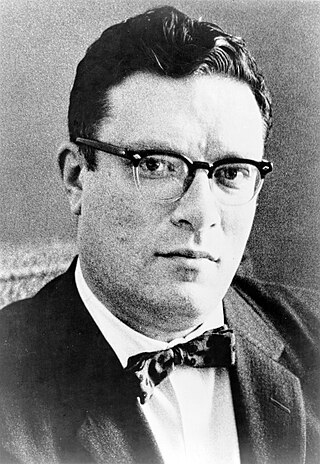
Isaac Asimov was an American writer and professor of biochemistry at Boston University. During his lifetime, Asimov was considered one of the "Big Three" science fiction writers, along with Robert A. Heinlein and Arthur C. Clarke. A prolific writer, he wrote or edited more than 500 books. He also wrote an estimated 90,000 letters and postcards. Best known for his hard science fiction, Asimov also wrote mysteries and fantasy, as well as popular science and other non-fiction.
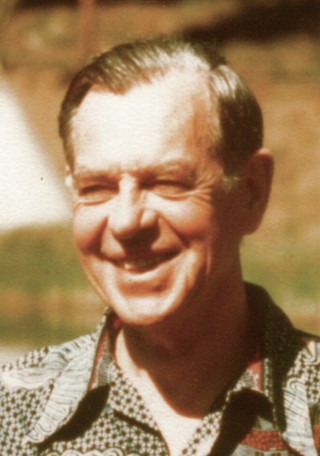
Joseph John Campbell was an American writer. He was a professor of literature at Sarah Lawrence College who worked in comparative mythology and comparative religion. His work covers many aspects of the human experience. Campbell's best-known work is his book The Hero with a Thousand Faces (1949), in which he discusses his theory of the journey of the archetypal hero shared by world mythologies, termed the monomyth.

Captain Robert von Ranke Graves was an English poet, soldier, historical novelist and critic. His father was Alfred Perceval Graves, a celebrated Irish poet and figure in the Gaelic revival; they were both Celticists and students of Irish mythology.
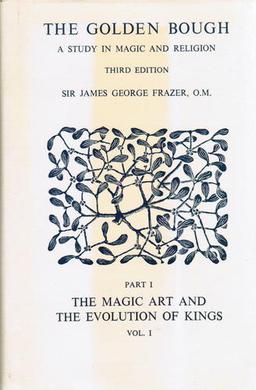
The Golden Bough: A Study in Comparative Religion is a wide-ranging, comparative study of mythology and religion, written by the Scottish anthropologist Sir James George Frazer. The Golden Bough was first published in two volumes in 1890; in three volumes in 1900; and in twelve volumes in the third edition, published 1906–1915. It has also been published in several different one-volume abridgments. The work was for a wide literate audience raised on tales as told in such publications as Thomas Bulfinch's The Age of Fable, or Stories of Gods and Heroes (1855). The influence of The Golden Bough on contemporary European literature and thought has been substantial.

Hindu mythology is the body of myths attributed to, and espoused by, the adherents of the Hindu religion, found in Hindu texts such as the Vedas, the itihasa the Puranas, and mythological stories specific to a particular ethnolinguistic group like the Tamil Periya Puranam and Divya Prabandham, and the Mangal Kavya of Bengal. Hindu myths are also found in widely translated popular texts such as the fables of the Panchatantra and the Hitopadesha, as well as in Southeast Asian texts.

The Goddess movement is a revivalistic Neopagan religious movement which includes spiritual beliefs and practices that emerged primarily in the United States in the late 1960s and predominantly in the Western world during the 1970s. The movement grew as a reaction both against Abrahamic religions, which exclusively have gods who are referred to using masculine grammatical articles and pronouns, and secularism. It revolves around Goddess worship and the veneration for the divine feminine, and may include a focus on women or on one or more understandings of gender or femininity.

Joseph Pearce, is an English-born American writer, and as of 2014 Director of the Center for Faith and Culture at Aquinas College in Nashville, Tennessee, before which he held positions at Thomas More College of Liberal Arts in Merrimack, New Hampshire, Ave Maria College in Ypsilanti, Michigan and Ave Maria University in Ave Maria, Florida.

Edward Flanders Robb Ricketts was an American marine biologist, ecologist, and philosopher. Renowned as the inspiration for the character Doc in John Steinbeck's 1945 novel Cannery Row, Rickett's professional reputation is rooted in Between Pacific Tides (1939), a pioneering study of intertidal ecology. A friend and mentor of Steinbeck, they collaborated on and co-authored the book, Sea of Cortez (1941).
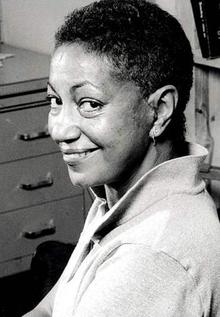
June Millicent Jordan was an American poet, essayist, teacher, and activist. In her writing she explored issues of gender, race, immigration, and representation.

Anne Katharine Stevenson was an American-British poet and writer and recipient of a Lannan Literary Award.

Mythago Wood is a fantasy novel by British writer Robert Holdstock, published in the United Kingdom in 1984. Mythago Wood is set in Herefordshire, England, in and around a stand of ancient woodland, known as Ryhope Wood. The story involves the internally estranged members of the Huxley family, particularly Stephen Huxley, and his experiences with the enigmatic forest and its magical inhabitants. The conception began as a short story written for the 1979 Milford Writer's Workshop; a novella of the same name appeared in the September 1981 edition of The Magazine of Fantasy & Science Fiction.

John Macquarrie (1919–2007) was a Scottish-born theologian, philosopher and Anglican priest. He was the author of Principles of Christian Theology (1966) and Jesus Christ in Modern Thought (1991). Timothy Bradshaw, writing in the Handbook of Anglican Theologians, described Macquarrie as "unquestionably Anglicanism's most distinguished systematic theologian in the second half of the 20th century."
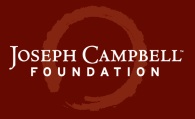
The Joseph Campbell Foundation (JCF) is a US not-for-profit organization dedicated to the work of influential American mythologist Joseph Campbell (1904–1987). The organization’s stated mission is to “invite you to experience the power of myth.” JCF fosters academic and popular discussion in the fields of comparative mythology and religion, psychology and culture through its publishing program, events, social media outreach, and website.
An origin myth is a type of myth that explains the beginnings of a natural or social aspect of the world. Creation myths are a type of origin myth narrating the formation of the universe. However, numerous cultures have stories that take place after the initial origin. These stories aim to explain the origins of natural phenomena or human institutions within an already existing world. In Greco-Roman scholarship, the terms founding myth or etiological myth are occasionally used to describe a myth that clarifies an origin, particularly how an object or custom came into existence.
Douglas Matthew Davis, Jr. was an American artist, critic, teacher, and writer for among other publications Newsweek.
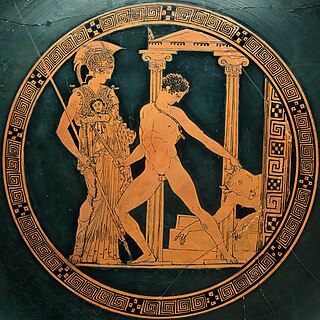
Greek mythology is the body of myths originally told by the ancient Greeks, and a genre of ancient Greek folklore, today absorbed alongside Roman mythology into the broader designation of classical mythology. These stories concern the ancient Greek religion's view of the origin and nature of the world; the lives and activities of deities, heroes, and mythological creatures; and the origins and significance of the ancient Greeks' cult and ritual practices. Modern scholars study the myths to shed light on the religious and political institutions of ancient Greece, and to better understand the nature of mythmaking itself.

Norse, Nordic, or Scandinavian mythology, is the body of myths belonging to the North Germanic peoples, stemming from Old Norse religion and continuing after the Christianization of Scandinavia as the Nordic folklore of the modern period. The northernmost extension of Germanic mythology and stemming from Proto-Germanic folklore, Norse mythology consists of tales of various deities, beings, and heroes derived from numerous sources from both before and after the pagan period, including medieval manuscripts, archaeological representations, and folk tradition. The source texts mention numerous gods such as the thunder-god Thor, the raven-flanked god Odin, the goddess Freyja, and numerous other deities.
Joseph Crespino is a political historian of the 20th-century United States, specializing in the history of the American South and of modern conservatism. He is the author of two books and an edited collection.

This is a comprehensive list of primary and secondary works by or about Benjamin Franklin, one of the principal Founding Fathers of the United States. Works about Franklin have been consistently published during and after Franklin's life, spanning four centuries, and continue to appear in present-day publications. Scholarly works that are not necessarily subject-specific to Franklin, yet cover his life and efforts in significant measure, may also be included here. In contrast, this bibliography does not include the numerous encyclopedia articles and short essays about Franklin.

















